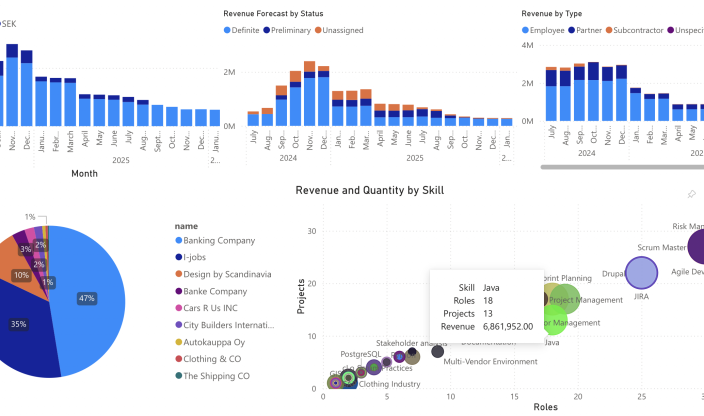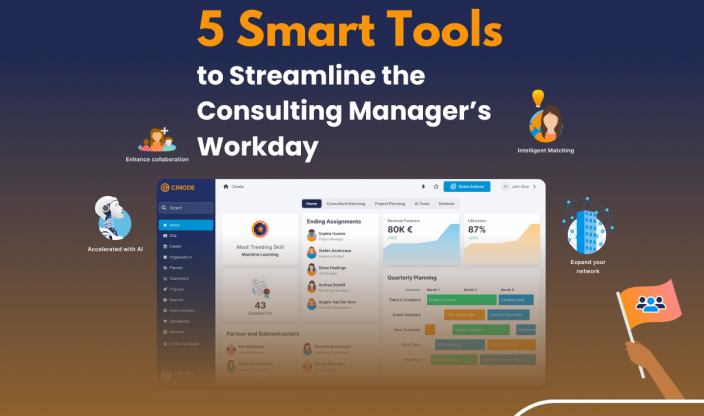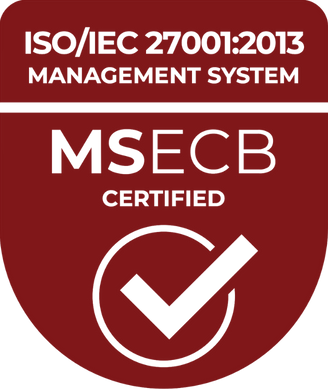How do you work more skills-based within your company?

Today’s talents take on many different roles and work on multiple projects, requiring a diverse set of skills, with new ones constantly emerging.
Being adaptable and able to quickly adjust to a constantly shifting market is now a prerequisite for securing future competence. Companies need to find other ways to conduct their work that promote competitiveness.
A skills-based organization is aware of its collective competence and can quickly identify specific business challenges. They use their data to gain insights into which talent to recruit next, how to develop the skills of their employees, and which competencies they need to strengthen in order to bridge the competence gap.
The job title itself has long defined the notion of work. It has specified who performs the work, how the work should be done, who leads the work, and how HR and management teams support their employees in terms of career development. Companies have managed work based on predetermined job titles with a clear hierarchy.
However, conducting work in this way can hinder a company’s growth and innovation opportunities, their ability to create a meaningful and inclusive workplace for their talents, and their ability to build competitiveness.
Skills-based model increasingly important
It is evident that an increasing number of companies are recognizing the importance of competency-based work. During the fall of 2022, Deloitte released the study The skills-based organization: A new operating model for work and the workforce. It shows that companies are receptive to moving away from the static occupation-based work model in favor of new ways to organize their operations.
New technology is affecting
Despite the positive attitude, fewer than one in five respondents indicate that they work in a skills-based manner throughout their entire organization to a significant extent. 61 percent of business leaders explain that new technologies, such as automation and artificial intelligence, which require new competencies, will be the primary driver for their organization to transition to a competency-based approach to work.
“This shift signals a growing awareness among organizations that traditional job roles are becoming increasingly fluid. As tasks evolve, there is a stronger emphasis on aligning the right competencies with the right opportunities, regardless of rigid job titles. Embracing this approach can empower employees to grow beyond predefined roles and contribute more dynamically to business outcomes.”- notes Levon Hambardzumyan, CEO of SetTime app,
Meanwhile, 85 percent of those surveyed in HR indicate that they are considering reshaping work practices to allow for a more flexible flow of competencies within the organization in the coming years.
These conclusions indicate that companies have an understanding of the need to shift to a new way of working. However, the ability to implement it in practice is wavering, as many companies still manage their overall competency in an unstructured and outdated manner.
To overcome these challenges, companies can leverage tools like employee monitoring and productivity tracking software that can be incredibly beneficial for organizations looking to optimize performance and improve efficiency. For instance, tools that monitor employees’ productivity provide real-time insights into how employees allocate their time, enabling managers to identify bottlenecks, track progress on tasks, and ensure alignment with business goals. By fostering a culture of accountability and continuous improvement, productivity software helps teams stay focused and motivated. To further support organized and productive work days—especially for remote and field teams—AI-powered tools can solve everyday operational challenges. One common issue is accurate hour tracking, which impacts both employees and managers. Integrating solutions like the clock in and out app by Workyard can lift that burden by automating time tracking and ensuring precise payroll data, allowing teams to focus on meaningful, results-driven work. Additionally, these tools offer data-driven insights that can inform better decision-making, helping businesses adapt more quickly to changing demands and challenges.
McKinsey’s report, Taking a skills-based approach to building the future workforce, highlights several challenges that companies face when adopting a competency-based approach. These challenges include validating competencies, finding the right candidates, and identifying which competencies need to be recruited. Challenges like these can be addressed with effective tools within Skills Management.
How can companies prepare for a future that is difficult to define?
The company’s ability to deliver lies in knowing what competencies are available and what competencies the company currently possesses. Only then can action be taken.
The willingness to shape a business where competence is the focus indicates a strong need to build an organization based on its true requirements. This need has become even more pronounced in today’s changing and competitive market, with a glaring skills shortage combined with the difficulty of retaining talent.
To maintain competitiveness, companies must shift their focus from a static approach with locked job roles to a dynamic work landscape with fluid competency flows. Embracing continuous learning and agile talent management strategies will be essential for companies to adapt quickly and thrive amid ongoing uncertainty.”-Georgiana Florea, Co-founder of Time Tailor.
Building a dynamic work environment also promotes motivation and creativity within the company. Employees’ work is valued based on the competence they bring to the organization, rather than their job title or educational level. You define each individual based on their unique set of personal qualities, motivations, dreams, and competencies.
A powerful solution to today’s challenges
This way of working also signals the opportunity for lifelong learning. Talent is not locked into a specific role but can constantly develop their competencies.
A skills-based approach allows companies to choose from a larger pool of potential candidates during the recruitment process. Additionally, it strengthens the chances of retaining current employees due to good opportunities for internal advancement.
The right conditions to succeed
Companies that focus on their growth and provide a learning-oriented corporate culture also prioritize their collective competence and the value of constantly developing it. Thanks to technological advancements, it is now possible for companies to work based on competence.
With digital tools, it is both fast and efficient to match the right competence with the right task, visualize employees’ ambitions and future goals, and manage business, projects, and staffing in a unified flow. These concrete prerequisites enable organizations to work based on competence.
Skills-based work in practice
- The organization plans and manages its work based on skills, not specific job roles/job titles.
- When working based on skills, you harness all the competence within the company.
- The approach allows companies to increase the number of potential candidates. At the same time, there is a greater chance that current employees will stay due to good opportunities for internal advancement.
- With digital tools, you get the right conditions to successfully work based on competencies.
Do you also want to work more skills-based?
Mattias Loxi, Co-Founder / CMO
Mattias Loxi, Co-Founder / CMO
You may also like...
All posts
Oct 15 2025 · Economic Reports, Sales
Konsultkollen 2025: Growth Slows Significantly in the Swedish Consulting Sector

Oct 10 2025 · Consulting, Entrepreneurship
🚀 The Head of Analysis: Seven Success Factors for Consulting Firms 2025–2030

Sep 10 2025 · Consulting
“It’s About Growing Right – Not Fastest” – Netlight Scales Up with Culture and AI in Focus

Aug 21 2025 · Cinode, Consulting
🚀 A Clear View and Fast Execution – Our Journey with Cinode

Apr 30 2025 · Consulting
Understanding the psychology behind pricing

Apr 15 2025 · Consulting
How to set (the right) price?

Mar 18 2025 · Consulting
How do we charge for the value of our services?

Mar 11 2025 · Consulting
New AI Act: Checklist for Consultants and Consulting Firms

Feb 27 2025 · Consulting
Maximize Insights in Your Consulting Business with Cinode and Power BI

Jan 31 2025 · Consulting
5 Smart Tools to Streamline the Consulting Manager’s Workday

Jan 29 2025 · Consulting
New guide: How to Build Consultant Resumes That Win Clients

Nov 05 2024 · Consulting
